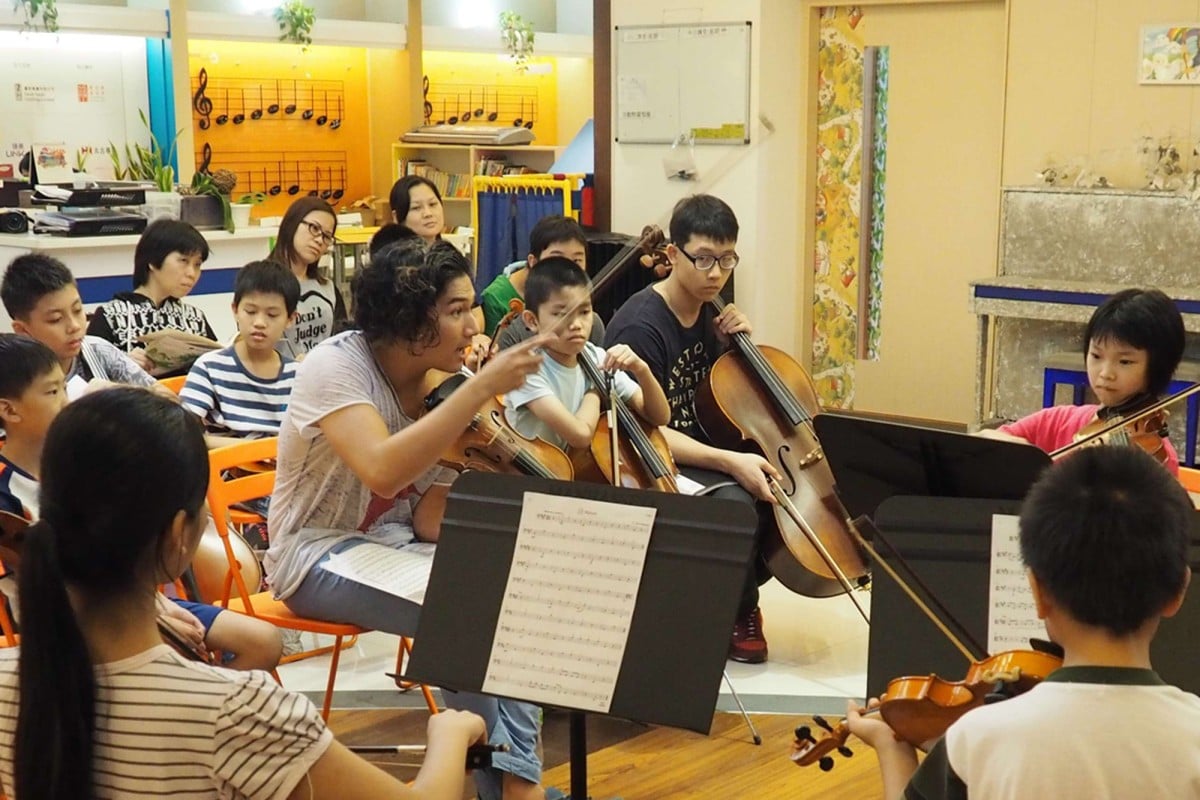
Violinist Iskandar Widjaja p(l)ays it forward by coaching disadvantaged young musicians
Music maestro Iskandar Widjaja knows it’s not about winning competitions – it’s about loving music for what it is, and sharing it with others
 Violin superstar Iskandar Widjaja leasd a workshop for underprivileged young musicians.
Violin superstar Iskandar Widjaja leasd a workshop for underprivileged young musicians.The music that filled the room faltered and stopped again. “Moderato e grazioso ... do you know what that means? It means slow and gracious,” Iskandar Widjaja told the young string quartet, waving his violin bow like a conductor’s baton. He urged the lead violinist, “You must be the ballerina, the primadonna, the shining voice.” After a brisk “Again!” from the teacher, the group took it from the top of the piece, Luigi Boccherini’s famous Minuet.
The 30-year-old Widjaja, one of the most respected and awarded violinists of his generation, probably should have been preparing for his concert at City Hall the next day, but chose to teach a workshop for underprivileged young musicians in Sham Shui Po.
“A recital at City Hall is an exciting milestone, but I wanted to get in touch with young performers to share my work ethic and mentality,” he told Young Post. “It’s important to me because I was helped when I was young. Every plant needs watering. You need to be in surroundings where you feel nurtured, safe and enriched in order to grow. I want to give back what I received.”
Three string groups had a chance to perform a piece in front of Widjaja, who would then offer individual players his feedback, aspects from speed to loudness and smoothness. A gasp went up in the room when Widjaja revealed he practised between five and six hours a day when he was 11. But he quickly reassured the students that time spent practising is about quality, not quantity. “It’s good even if you can practise an hour a day. You can achieve a lot in an hour.”
John Puk, 10, has been playing viola for two years, and attends the Music Children Foundation lessons in the Fu Cheong centre twice a week – on Wednesdays with the violin group, and on Saturdays for a string quartet session. He was in the third group to be coached by Widjaja. “Today, I learned about dynamics, how to express the song, and how to make the music sound more lively, and smoother,” he reflected. He said that playing music has helped his family to see him as hard-working, and he tries to practise between 30 minutes and an hour every day. The workshop with Widjaja clearly made a big impact on the young musician. “Learning viola isn’t difficult, but learning how to master it is very difficult,” he said, adding, “I love performing live. It was scary the first time, but now I’m used to it. I’d like to become a famous violist in the future.”
Widjaja was asked to judge each group and pick a winner, but he politely declined. “That’s just not my kind of philosophy and mentality,” he said. When he was a child, his parents and teachers would encourage him to enter competitions, but he stopped as soon as he was old enough.
“On one hand, wanting to win first place makes you work harder. But then it becomes a sport and I don’t think that’s what music should be. Because then you get losers, who are disappointed,” he explained.
Widjaja continued, “The students today were doing it right by playing together – that’s one of the most inspiring things, sharing and reacting to one another. Music is and should be a social activity. Yes, there are times when you need to work on your own to hone your craft, but then in the end it should be social.”
Born in Berlin, Germany, Widjaja grew up in a creative environment, with parents who supported his journey to becoming a world-famous musician. His grandfather was a self-taught pianist and composer, who wrote many songs that are still used in Indonesian tai chi sessions. Widjaja realised he loved performing live when he was seven.
“I got this flow of energy from the audience. It just felt right,” he said. Things became serious when he was 10. During the school summer holidays, he fell in love with Christian Ferra’s rendition of Massanet’s Meditation. Before his mum could even buy him the music, he had already learned the piece by playing along with the recording. After the holiday ended, he went back to school and showed his teacher what he’d learned. “She told my mum I should try out for music college in Berlin. I’m thankful for her to this day.”
Aged 11, Widjaja became the youngest student at the College of Music in Berlin. “That was it for me. I was super-focused – a child that took everything over-seriously. I was obsessed with the violin and wanting to perfect it,” he said. laughing as he added, “A strange kid.”
Edited by Ginny Wong
